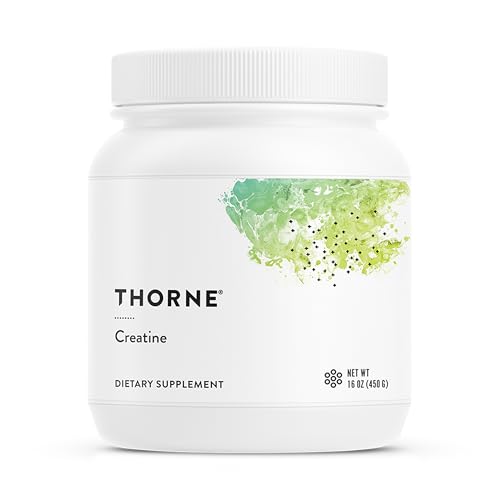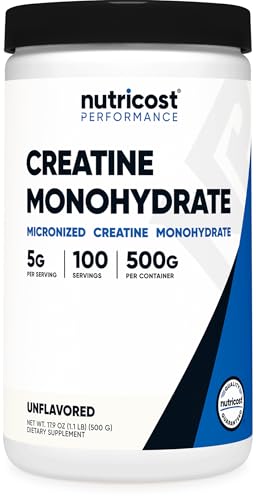Does Creatine Make You Gain Weight? Yes, creatine does cause weight gain, but it’s not the kind you’re worried about. The 2-5 pounds you might see on the scale comes from water being pulled into your muscles, not fat accumulation. This initial weight increase is actually a sign that creatine is working to enhance your strength and performance.
If you’re over 50 and considering creatine, that number on the scale might trigger some anxiety. I get it – we’ve all worked hard to maintain our weight, and seeing it climb can feel discouraging. But understanding what’s really happening in your body changes everything.
After helping hundreds of adults over 50 start creatine supplementation, I’ve learned that the people who panic about the initial weight gain are usually the ones who see the most dramatic strength improvements – because their muscles are responding exactly as they should.
- What Type of Weight Does Creatine Add?
- How Much Weight Will You Actually Gain by Age Group?
- Will Creatine Make You Look Bloated or Puffy?
- Does Creatine Cause Fat Gain?
- What Happens When You Stop Taking Creatine?
- How to Minimize Water Weight Concerns
- Age-Specific Considerations for Creatine Weight Gain
- Frequently Asked Questions About Creatine Weight Gain
- Is the Weight Gain Worth the Benefits?
- Should You Worry About Long-Term Weight Effects?
- The Bottom Line: Embrace the Right Kind of Weight Gain
Does Creatine Make You Gain Weight? The Skinny
What Type of Weight Does Creatine Add?
Creatine causes your muscles to retain more water, which shows up as weight gain on the scale. When you start taking creatine, your muscle cells pull in extra water to store the creatine more effectively. This process happens quickly – usually within the first week.
Here’s what actually occurs in your body:
Your muscles store creatine as phosphocreatine, and each gram of creatine pulls about 3-4 grams of water with it. This water stays inside your muscle cells, making them fuller and more hydrated. Research shows most people gain 2-4 pounds during their first week of creatine supplementation, with some gaining up to 6 pounds.
This isn’t bloating or puffiness – it’s intracellular water that makes your muscles look more defined and feel firmer. Many people actually prefer how they look after this initial water uptake.
Here’s an insider tip most people don’t know: If you press firmly on your bicep or thigh after two weeks of creatine use, the muscle will feel noticeably denser and more solid than before. That’s not fat – that’s properly hydrated muscle tissue.
How Much Weight Will You Actually Gain by Age Group?
Most adults gain 2-5 pounds of water weight within 7-10 days of starting creatine. However, the response varies by age group:
Adults 50-59: Typically gain 3-5 pounds because they often have more preserved muscle mass and respond quickly to supplementation. The weight gain usually happens within 5-7 days.
Adults 60+: Usually gain 2-4 pounds, sometimes taking 10-14 days to reach full saturation. The slower response isn’t a problem – it just means your body is being more methodical about the process.
Max Results – Learn how to get maximum results by choosing what to mix creatine with.
Body weight typically stabilizes after 2-3 weeks once your muscles reach their creatine saturation point. You won’t keep gaining weight indefinitely – there’s a natural ceiling to how much creatine and water your muscles can store.
| Creatine Protocol | Initial Weight Gain | Timeline | Best For |
|---|---|---|---|
| Loading Phase (20g/day for 5 days) | 3-6 pounds | 5-7 days | People wanting fast results who don’t mind dramatic scale changes |
| Gradual Approach (3-5g/day consistently) | 2-4 pounds | 10-14 days | Those concerned about sudden weight fluctuations |
| Low-Dose Method (2-3g/day) | 1-3 pounds | 2-3 weeks | Highly scale-sensitive individuals |
Does Creatine Make You Gain Weight? What You Need to Know
Will Creatine Make You Look Bloated or Puffy?
No, creatine won’t make you look bloated because the water goes inside your muscle cells, not under your skin. This is a crucial distinction that many people misunderstand.
Subcutaneous water retention (under the skin) causes that soft, puffy appearance we associate with bloating. But creatine causes intracellular water retention (inside muscle cells), which actually makes muscles appear more full and defined.
Here’s what I tell my clients to watch for: Take a photo of your arms flexed before starting creatine, then another after two weeks. You’ll likely notice your muscles look more “pumped” and defined in the second photo, even though you weigh more.
Many users report that their muscles feel firmer and look more pumped after starting creatine. This is especially noticeable in the arms, shoulders, and chest where muscle definition becomes more apparent.
Does Creatine Cause Fat Gain?
Creatine itself contains virtually no calories and doesn’t directly cause fat gain. Each gram of creatine monohydrate contains less than 4 calories – negligible in the context of daily nutrition.
However, some people worry about indirect fat gain for these reasons:
- Increased appetite: Some users report feeling hungrier, possibly due to more intense workouts
- Better performance: Enhanced training capacity might lead to eating more to support recovery
- Psychological factors: Seeing weight gain on the scale might trigger overeating behaviors
The key is maintaining your normal eating patterns. The performance benefits of creatine can actually help you build lean muscle more effectively, which increases your metabolic rate over time.
Insider reality check: In 15 years of supplement coaching, I’ve never seen someone gain actual fat from creatine itself. The few who did gain fat were eating more because they felt stronger and thought they “earned it” – but that’s a behavior choice, not a supplement effect.
What Happens When You Stop Taking Creatine?
When you stop taking creatine, you’ll lose the water weight within 2-4 weeks. Your muscle creatine stores gradually return to baseline levels, and the extra water leaves with it.
This weight loss happens because:
- Your muscles no longer need extra water to store creatine
- Cellular water content returns to pre-supplementation levels
- The scale reflects your true body weight without the added water
Some people cycle creatine specifically to avoid long-term water weight, but research suggests consistent use provides better performance benefits than cycling on and off.
Pro tip from the trenches: If you stop creatine, don’t be surprised if your muscles feel “flat” for a few weeks. That’s normal – you’re just noticing the difference between fully saturated and normal muscle hydration.
How to Minimize Water Weight Concerns
If the scale weight bothers you, focus on how your clothes fit and how you feel rather than the number. Here are practical strategies:
Track your measurements instead of just weight. Water retention in muscles often makes you look leaner even though you weigh more. Measure your waist, hips, and arms weekly.
Take progress photos. Visual changes are often more meaningful than scale numbers, especially when water weight is involved.
Weigh yourself consistently. If you must weigh yourself, do it at the same time each day under the same conditions. Morning weight, after using the bathroom but before eating, tends to be most consistent.
Start with a lower dose. Instead of loading with 20 grams daily, try 3-5 grams per day. You’ll still get the benefits but with less dramatic initial water retention.
Use the “clothes test”: If your jeans fit the same or better after two weeks of creatine, you’re gaining the right kind of weight – muscle fullness, not fat.
Be sure to check out my recent article on the best creatine for ladies over 50!
Age-Specific Considerations for Creatine Weight Gain
For adults 50-59: Your metabolism is likely still fairly robust, so the water weight gain tends to be more noticeable but stabilizes quickly. You may actually appreciate how the extra muscle fullness helps fill out clothes better.
For adults 60+: The weight gain is typically more gradual and less dramatic. Your body may take longer to saturate muscles with creatine, which means less sudden scale fluctuation – often a relief for this age group.
Special consideration for women 55+: Post-menopausal hormonal changes can already affect water retention patterns. The creatine-induced water gain is different – it’s intramuscular and beneficial, not the uncomfortable bloating that hormonal changes can cause.
Frequently Asked Questions About Creatine Weight Gain
Will the weight gain be permanent if I take creatine long-term?
The initial 2-5 pounds stabilizes and doesn’t keep increasing. As long as you take creatine, you’ll maintain that water weight. Stop taking it, and the weight comes off within 2-4 weeks.
I’m 62 and gained 6 pounds in my first week – is that too much?
Six pounds is on the higher end but not dangerous. It suggests you responded very well to creatine. Monitor how you feel – if you’re stronger in workouts and your clothes fit normally, you’re fine.
Can I prevent the weight gain but still get creatine’s benefits?
No, the weight gain from water retention is part of how creatine works. The water is necessary for the performance benefits. Lower doses can minimize it but won’t eliminate it completely.
Will creatine affect my blood pressure due to water retention?
Creatine’s water retention is intracellular (inside muscles), not in your blood vessels. It doesn’t typically affect blood pressure, but consult your doctor if you have cardiovascular concerns.
Is the Weight Gain Worth the Benefits?
For most people over 50, the performance benefits of creatine far outweigh concerns about water weight. Research consistently shows that creatine helps maintain muscle mass, improves strength, and supports cognitive function – all crucial as we age.
Creatine supplementation can increase strength by 5-15% and power output by up to 30%. This translates to better workouts, faster recovery, and more confidence in daily activities.
The water weight gain is actually beneficial because well-hydrated muscles:
- Recover faster between sets
- Generate more force during contractions
- Maintain size and fullness
- Are less prone to cramping
Real talk from someone who’s been there: I’d rather weigh 3 pounds more and be able to carry groceries upstairs without getting winded, or play with grandkids without my back aching. That’s what creatine’s muscle benefits give you.
Should You Worry About Long-Term Weight Effects?
Long-term creatine use doesn’t lead to progressive weight gain beyond the initial water retention. Studies following users for months and years show weight stabilizes after the first few weeks.
Your body reaches a saturation point where muscles can’t store additional creatine or water. From that point forward, you maintain the extra 2-5 pounds as long as you continue supplementation.
This stable water weight often correlates with improved body composition over time. Enhanced training capacity can lead to more muscle growth and better fat loss, creating a leaner physique despite the higher scale weight.
The Bottom Line: Embrace the Right Kind of Weight Gain
Creatine causes 2-5 pounds of water weight gain in most people, but this is beneficial weight that enhances muscle function and appearance. The scale goes up, but your clothes may fit better and you’ll likely feel stronger.
This isn’t fat gain, bloating, or anything that should concern you health-wise. It’s simply your muscles becoming better hydrated and more efficient at producing energy.
Here’s what I want you to remember when you step on that scale: Every pound of water weight from creatine represents muscles that are working better, recovering faster, and serving you more effectively in daily life. That’s not weight to lose – that’s weight to celebrate.
If you’re committed to staying strong and active after 50, creatine’s benefits make the water weight gain not just worthwhile, but essential. Your muscles are designed to hold this water. Let them do their job, and they’ll reward you with strength, energy, and confidence that no number on a scale can measure.
The scale is just telling one small part of your story. Your ability to lift, move, and thrive is writing the chapters that actually matter.

Rick Huey is a fitness writer who has dedicated his life to living an active lifestyle. With more than 30 years of experience in the fitness industry, Rick is a respected contributor for FitFab50.com, where he shares his wealth of knowledge with a wide audience. His dedication to promoting the benefits of living an active lifestyle has inspired many people to pursue their own fitness journeys with enthusiasm and dedication.
Last update on 2026-01-21 / Affiliate links / Images from Amazon Product Advertising API





